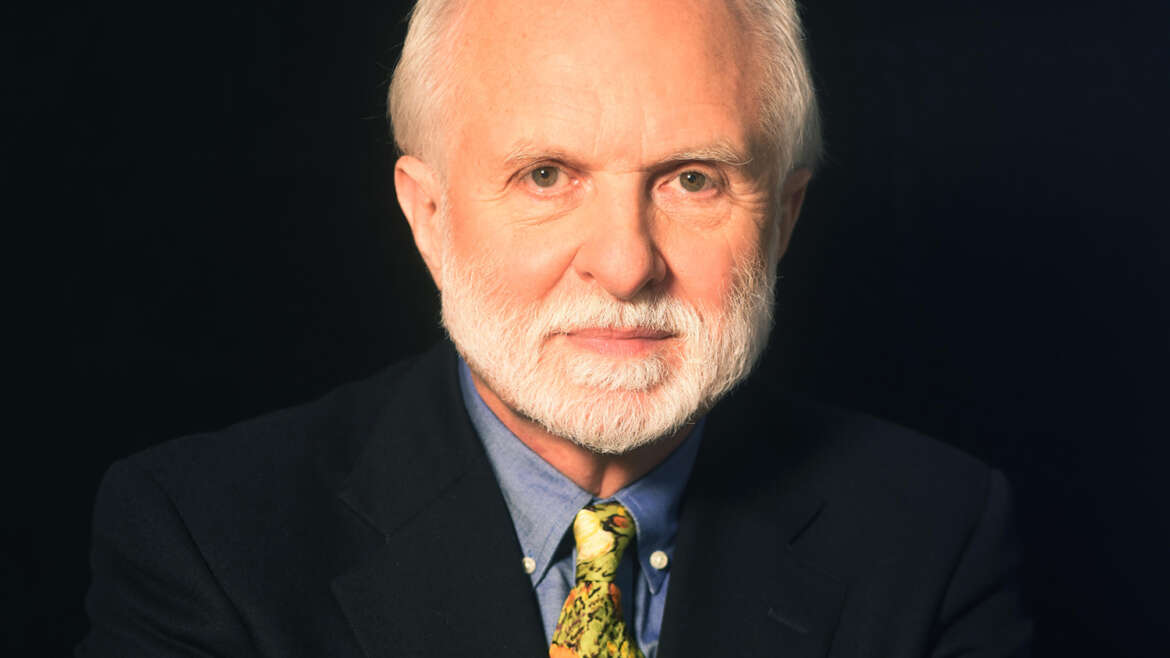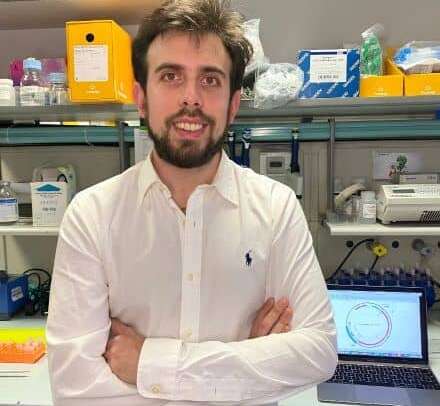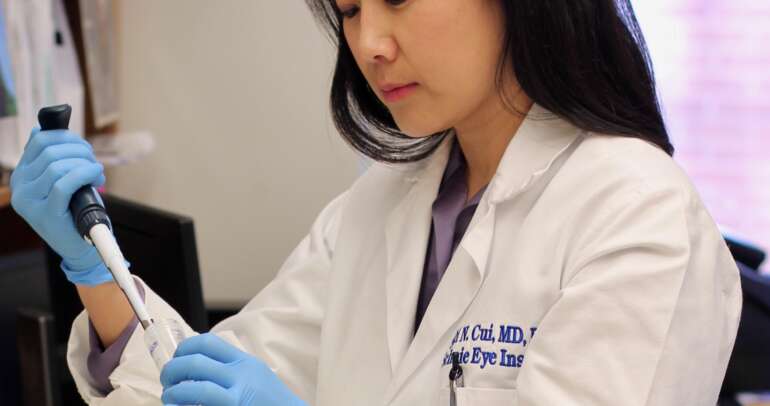For Dr. James Hudspeth, a life devoted to science was a vocational calling. When he was as young as five years old, Dr. Hudspeth began amassing an impressive collection of items from the natural world that surrounded him in Texas. This collection, carefully curated in tandem with his brother, included over 200 pets of all sorts: cats, dogs, turtles, snakes, and crows. Though Dr. Hudspeth now works in New York City as the F. M. Kirby Professor at The Rockefeller University, he is still surrounded by animals – the thousands of larval zebrafish that live in his laboratory.
Dr. Hudspeth and his team study the normal hearing process to understand the causes of hearing deterioration and to explore possibilities for hearing regeneration. The hearing loss experienced by most people is caused by damage to the sensory hair cells found in the inner ear, which are one of the few types of cells in the human body that do not regenerate. The zebrafish, however, is a species that experiences hair cell regeneration. By studying the sensorineural pathways that lead to this replacement of hair cells in zebrafish, Dr. Hudspeth hopes to identify pathways in the human ear that might lead to the regeneration of hair cells after damage.
Most recently, Dr. Hudspeth and his team have been exploring how to harness the regenerative potential of the Hippo signaling pathway, which acts as an evolutionary “emergency brake” that prevents the excess growth of tissue or the development of cancer in the body. Temporarily removing this brake in a controlled manner, however, may allow the positive regeneration of cells within organs that cannot typically heal themselves, such as the retina, heart, and ear. Dr. Hudspeth’s team at Rockefeller has recently identified a molecule that inhibits part of the Hippo signaling pathway, thus introducing the potential for this positive regrowth. Now, his team is studying the effect of this molecule in living animals and working with partner researchers across the country to explore the implications of their findings for those who have suffered from vision loss, hearing loss, or cardiovascular ailments.
With the natural world as his earliest classroom, Dr. Hudspeth was empowered to pursue an educational path that eventually led him to a career in sensory neuroscience. In his 28th year with The Rockefeller University, Dr. Hudspeth is proud to participate in the outreach programs that the University sponsors to encourage in high school and college students the same love of science and learning that he has experienced throughout his life.
You can learn more about the work of Dr. Hudspeth and his team at The Rockefeller University here.



